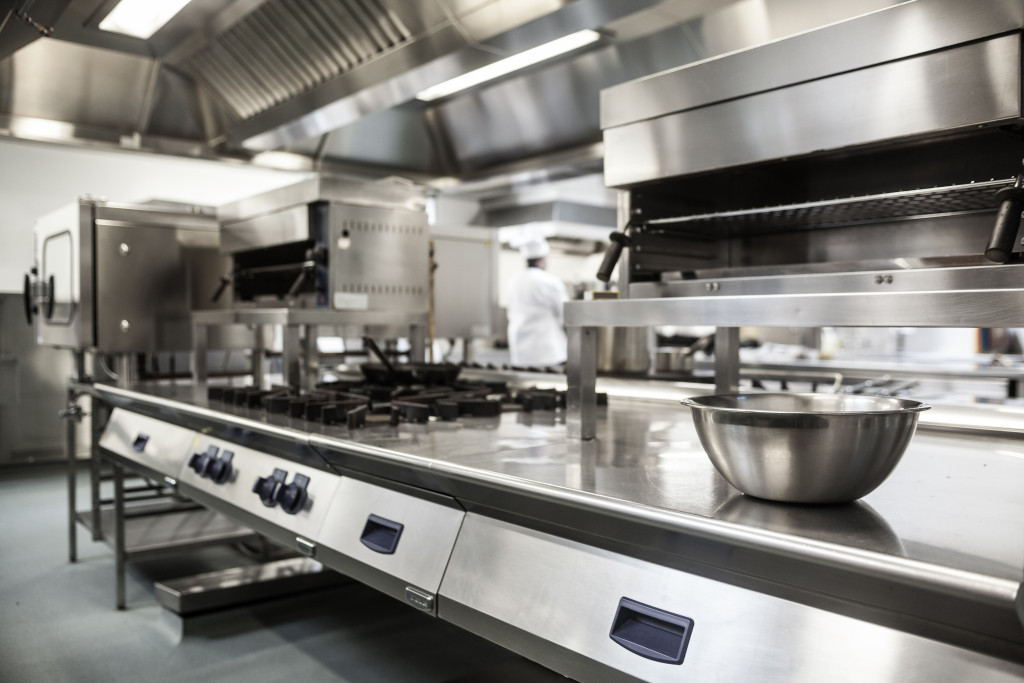Everyone loves to cook, but few people know how to take care of their kitchen equipment. There are many pieces of kitchen equipment you need for successful cooking and food prep: utensils, pots, pans, knives — the list goes on! You should always clean your equipment after each use and oil it if necessary.
If not taken care of properly, your kitchen equipment can corrode, rust, and even get coated with bacteria. However, if you follow these simple tips, you can keep your kitchen running like a well-oiled machine:
1. Always Clean Your Equipment After Each Use
One of the most important things you can do to keep your kitchen equipment in good condition is to clean it after each use. Bacteria can build up quickly on dirty surfaces and, if not cleaned, can cause food poisoning.
Make sure to clean all of your cooking utensils, pots and pans, and knives with hot water and soap. Be sure to scrub off any stuck-on food or grease. If you have a grill, you should also clean the grates after each use. This will help prevent bacteria build-up and corrosion.
2. Oil Your Grill Grates Regularly
Your grill grates can easily rust if they’re not oiled regularly. To prevent this, you should oil them every time you use your grill. You can buy a special grill spray or just use vegetable or olive oil. Spraying the grates with cooking spray (vegetable, canola, sunflower) is also an excellent way to keep them from sticking. You can also buy new grill parts if your old ones start to rust.
3. Don’t Use Metal Utensils on Non-Stick Pans
Many people don’t know this, but you should never use metal utensils on non-stick pans. Metal utensils can scratch the non-stick coating, which will make the pan less effective and eventually cause it to wear away.
Use only wooden or plastic utensils when cooking with non-stick pans. This will help keep your pans in good condition for years to come.
4. Don’t Put Hot Pots and Pans in the Sink
One of the worst things you can do to your pots and pans is to put them in the sink. If they’re still hot, the water will cause them to rust.
Instead, let your pots and pans cool down before putting them in the sink. This will help keep them in good condition for longer.
5. Store Your Kitchen Equipment Properly
When not in use, you should always store your kitchen equipment properly. This will help prevent corrosion, rust, and bacteria build-up.
Ideally, you should store all of your cooking utensils and pots, and pans in a dry place. You can also buy special storage racks or cabinets to help you organize your kitchen.
6. Don’t Use Your Knives to Cut Hard Objects
One of the most important things to remember about knives is that you should never use them to cut hard objects. Doing so can cause the knife blade to become dull or even damaged.
Only use your knives to cut soft objects, like fruits and vegetables. This will help keep them in good condition for years to come.
7. Sharpen Your Knives Regularly
If you want your knives to last long, you need to sharpen them regularly. Dull knives are more dangerous than sharp ones, as they require more force to cut through food.
You can sharpen your knives with a sharpening stone or steel, or you can take them to a professional. Either way, make sure to do this regularly to keep your knives in top condition.
8. Don’t Leave Wet Sponges or Cloths Around
Sponges and cloths are breeding grounds for bacteria. If you leave them wet, they will become even more contaminated.
To prevent this, always wring out your sponges and cloths after use. You should also replace them regularly — about once a month — to prevent the build-up of bacteria.
9. Keep Your Kitchen Clean

One of the best ways to keep your kitchen equipment in good condition is to keep your kitchen clean. Bacteria can easily spread in dirty environments, so it’s important to keep things clean.
Wipe down surfaces, floors, and appliances with hot water and soap. You should also wash dishes as soon as possible after use. By keeping your kitchen clean, you can prevent bacteria build-up and the spread of disease.
10. Don’t Use Abrasive Cleaners
Abrasive cleaners can damage your kitchen equipment. They can cause scratches, dulling, and even corrosion.
To avoid this, only use gentle cleaners on your equipment. You can buy specialized cleaning products, or you can make your own with vinegar and water.
Kitchen equipment is an important part of any kitchen. By following the simple tips in this article, you can keep your kitchen equipment in good condition for years to come. By taking care of your kitchen equipment, you’ll be able to cook delicious meals for your friends and family for years to come!

